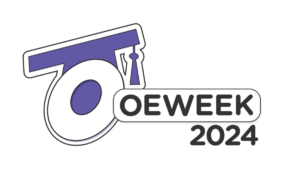We have the tools to create books at scale, at zero cost, and with complete freedom from publisher deadlines and formatting limitations.”
This first week in March, Emory Libraries celebrates Open Educational Resources (OER) by spotlighting Matthew Sag, Professor of Law, Artificial Intelligence, Machine Learning and Data Science at Emory University Law School, and author of the open textbook “Extended Readings on Copyright.” In an interview with copyright librarian John Morgenstern, Sag observed that the decision to create his own textbook was born out of necessity: a textbook suiting his needs did not exist. “I had already developed a reasonably comprehensive set of notes for the course and saw the opportunity to create something better and more flexible, for my own course and for anyone who wanted to use it,” said Sag, adding that he is anecdotally aware of other professors using the text in India and China. “Some professors may have chosen to use it because they think it’s great; others may use it because it’s free,” he said. “However, if the only people who ever read the book are my students, it will have been well worth the effort.”

Matthew Sag, Professor of Law, Artificial Intelligence, Machine Learning and Data Science
Open Education Week celebrates textbooks and teaching materials that are published openly, that is, freely shared online and freely available for everyone to use, whether instructor, student or self-learner. Sag told us that his decision to publish openly was “in part ideological: providing free public goods is a good in its own right.” He went on to explain, “The incentive of writing a book that would be widely read and used far outweighed any prospect of financial gain.”
Sag reflected on the benefits of publishing openly, noting the importance of flexibility and keeping current. “The flexibility of a custom and customizable textbook facilitates various pedagogical approaches,” he said. “Some of the book’s chapters were designed for a flipped classroom, which invites students to work through scenarios and apply complex concepts on their own.” Sag suggests that textbooks have a natural expiration date: “We should retire textbooks after 20 years. Older textbooks cleave to outdated structures. They are rooted in issues that were of great importance in their time, but the issues move on.” For his own textbook, he is “ruthless about removing cases from ‘Extended Readings on Copyright’ that are less relevant given the latest issues in copyright law. In 10 years, the book will inevitably look quite different.”
Writing the textbook has been a challenging and thought-provoking exercise. “I maintain a constantly evolving document on my hard drive, but there’s always at least six months between formal updates,” he said. “I adjust the book due to court rulings but also conference presentations and other exchanges that raise useful questions.” In keeping pace with changing student learning modalities, Sag noted that he “had to consider how clearly to spell out examples while leaving room for students to work through concepts, apply them, and make their own discoveries.”
OER have been gaining in importance at Emory since at least 2014, with the Emory Open Education Initiative. From 2014 to 2016 the initiative awarded mini-grants to be used to create or compile OER in lieu of assigning a textbook. Though short-lived, this initiative marked the beginning of the library’s attempt to create a culture supportive of open access among the faculty. In 2018 the library collaborated with CFDE to create the Affordable Textbook and Teaching Materials initiative to encourage active solutions to the rising cost of textbooks.
When asked what advice Sag would give to colleagues who are considering OER for their courses, he replied, “I’d tell colleagues to give themselves time and space for imperfection. The first edition doesn’t need to be perfect to be useful.” The benefits of OER are very clear, as Sag says: “We have the tools to create books at scale, at zero cost, and with complete freedom from publisher deadlines and formatting limitations.” Sag concluded with this advice for his colleagues: “You don’t need to do this alone—an OER can be collaboratively authored. You might even involve students in the process.”
—Jennifer Townes, Open Access librarian

